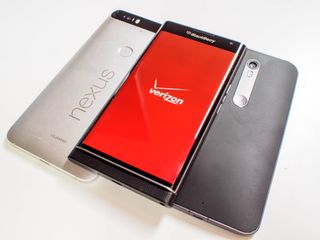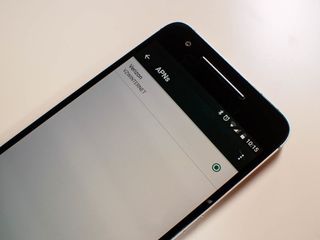Life on Verizon in an unlocked Android world isn't as painful as it used to be

As a Verizon Wireless subscriber, watching as the rest of the US carriers get awesome phones and timely updates used to be a regular punch in the face. Nexus phones pass Big Red and laugh, Sony's amazing hardware shows up with last year's internals or no fingerprint sensor, and after what happened with updates on the 2014 Moto X I was ready to change networks and be done with the whole mess. I'm a big fan of Verizon Wireless coverage and quality, especially in my area, but that matters a whole lot less if I can't enjoy the hardware and software I'm using.
Fast forward to today, and I'm still using Verizon Wireless. In fact I couldn't be happier, and it's all because of the unlocked phones we've seen over the last year that play nice with Verizon Wireless.
If you're savvy or fortunate enough to never need customer support from Verizon Wireless, this setup works great.
BlackBerry's PRIV, the Moto X Pure Edition, and Google's Nexus 5X and 6P top the list of unlocked Android phones that have worked well on Verizon Wireless this year, with next to no effort on my part. Pop my Verizon SIM in, wait for the phone to recognize the new card, and that's it.
If you've never used Verizon Wireless before, you may not be aware of just how big a deal this is. Not all that long ago, activating a phone on Verizon Wireless meant CDMA provisioning and a test phone call to ensure everything worked as intended. That hasn't been the case with these phones, and it makes recommending unlocked phones to Verizon customers a whole lot easier.
Popping the Verizon SIM in gets you going, but occasionally there's a step or two that has to happen next in order to ensure the best possible connection to the Verizon networks. Out of the box, the Moto X Pure Edition and Nexus 6P will drop from LTE to CDMA in low signal areas and struggle to reconnect. A quick fix in these situations has been to toggle airplane mode, but the real solution is to switch your mobile data settings from Global to LTE/CDMA and make sure roaming is enabled. The BlackBerry PRIV, on the other hand, will reboot once you put a Verizon SIM in and when that finishes you'll have all of the settings automatically changed for you. You'll even have a Verizon Wireless bootsplash animation, which is a little strange to see at first on a phone you bought unlocked.
Once everything is set up correctly, there's been no appreciable difference in call quality or data connection when compared to other Verizon Wireless phones. Activating Enhanced LTE Mode in settings allows you to use VoLTE where available, and there's a noticeable difference in call quality when you do. It's just like using a Verizon Wireless certified phone, right until it isn't. On two occasions the phone has become completely disconnected from the network for seemingly no reason, one of which required a reboot to reconnect. These incidents were months apart, but there's still no answer as to why it happened in the first place.

If you're savvy or fortunate enough to never need customer support from Verizon Wireless, this setup works great. If you find yourself wandering into a store to get a SIM replaced or you're in need of some technical assistance, you'll quickly find Verizon employees are either unable or unwilling to help deal with non-Verizon hardware.
Be an expert in 5 minutes
Get the latest news from Android Central, your trusted companion in the world of Android
You can forget about activating a new SIM on a non-Verizon phone in most cases, which is a problem that even extends to Verizon's billing system. When trying to step down from Verizon's unlimited data plan recently, the inability to input a Verizon phone as the current phone on my line caused days of confusion. Neither the website nor an in-store representative were able to input a non-Verizon phone, so the plan couldn't be changed. This was eventually fixed, but it's a good example of the kind of frustration that comes along with non-Verizon hardware in this environment.
The cool thing is this is only going to get better over time. More unlocked phones will be released with support for Verizon Wireless, and at the same time Verizon's network is going to continue to adopt global standards and play nice with just about everything. Before too long, we might look back at Verizon's dark ages and laugh as we swap SIMs with reckless abandon.

